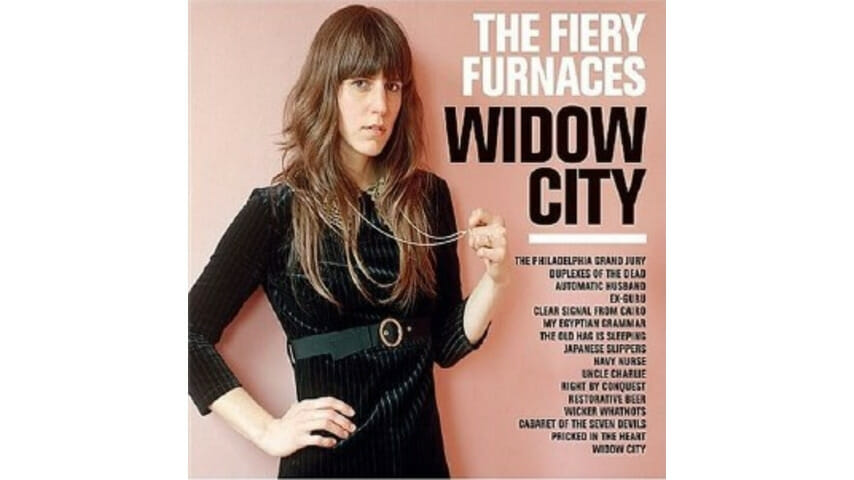The Fiery Furnaces: Widow City

City of Gaud
The Fiery Furnaces compress their glitzy prog-pop into bite-sized packets
If you don’t like the Fiery Furnaces by now, you probably never will. Their overstuffed sixth album gives no indication that Matthew and Eleanor Friedberger intend to scale back their decadent musical buffet, which—according to your threshold for pageantry— might be regarded as a smorgasbord of delight or a gluttonous binge. The Friedbergers are maximalists trapped in a minimal age, where concision and austerity enjoy a higher premium than sumptuous overstatement. But if the Furnaces are the Cirque de Soleil to the prevailing trend’s Butoh, they’ve maintained a fairly sterling critical reputation against the odds. Like the guy in the triple-XL harmonica vest once said, “the hook brings you back,” and The Fiery Furnaces always pack plenty of memorable hooks into their intricately arranged prog-pop.
-

-

-

-

-

-

-

-

-

-

-

-

-

-

-

-

-

-

-

-

-

-

-

-

-

-

-

-

-

-

-

-

-

-

-

-

-

-

-

-








































